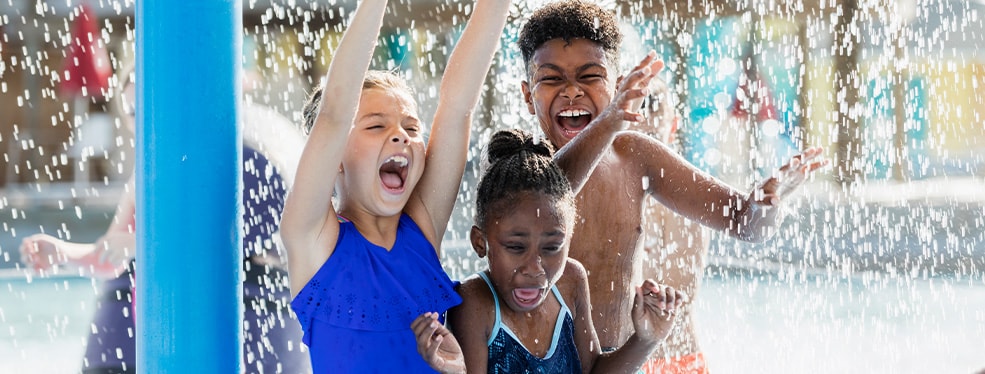Swimming Hygiene

We all share the water we swim, play, or relax in. That means each of us needs to do our part to help keep ourselves, our families, and our friends healthy when we swim. Germs can spread through the water in pools, hot tubs, and splash pads and cause swimming-related illnesses. These illnesses can cause diarrhea, skin rashes, ear pain, cough or congestion, and eye pain.
The best way to prevent swimming-related illnesses from spreading is to keep germs out of the water in the first place. This means that if you or your child has been sick with diarrhea in the past two weeks, you should stay out of the water.
You can also protect yourself from the most common germs by keeping water out of your mouth when you swim and drying your ears after you swim.
Learn more about swimming-related illnesses and what other steps you can take to stay healthy when you swim by visiting Swimming-related Illnesses and Steps for Healthy Swimming on the Healthy Swimming website.
Although chlorine and other disinfectants are an effective way to kill germs found in recreational water, they do not work instantly. Despite the use of disinfectants, many people have become sick with recreational water illnesses (RWIs), which are caused by germs spread by swallowing, breathing in mists or aerosols of, or having contact with contaminated water from swimming pools, hot tubs/spas, lakes, rivers, or oceans. RWIs include gastrointestinal, skin, ear, respiratory, eye, neurologic, and wound infections. The most commonly reported RWI is diarrhea, caused by germs like Cryptosporidium (“Crypto”) and E. coli 0157:H7.
In the past two decades, there has been an increase in the number of RWI outbreaks. Remember, chlorine and other disinfectants don’t kill germs instantly. Additionally, the mixing of chlorine with pee and sweat uses up the chlorine in the pool, which would otherwise kill germs.
We all share the water we swim in, and each us needs to do our part to help keep ourselves, our families, and our friends healthy. You can help prevent the spread of germs that cause RWIs by learning more about Swimmer Protection.
To help protect yourself and other swimmers from germs, here are a few easy and effective steps all swimmers can take each time we swim:
Keep the pee, poop, sweat, and dirt out of the water!
- Stay out of the water if you have diarrhea.
- Shower before you get in the water.
- Don’t pee or poop in the water.
- Don’t swallow the water.
Every hour—everyone out!
- Take kids on bathroom breaks.
- Check diapers, and change them in a bathroom or diaper-changing area–not poolside–to keep germs away from the pool.
- Reapply sunscreen.
- Drink plenty of fluids.
Check the free chlorine level and pH before getting into the water.
- Pools: Proper free chlorine level (1–3 mg/L or parts per million [ppm]) and pH (7.2–7.8) maximize germ-killing power.
- Hot tubs/spas: Proper disinfectant level (chlorine [3–10 parts per million or ppm] or bromine [4–8 ppm] and pH [7.2–7.8]) maximize germ-killing power.
- Most superstores, hardware stores, and pool-supply stores sell pool test strips.